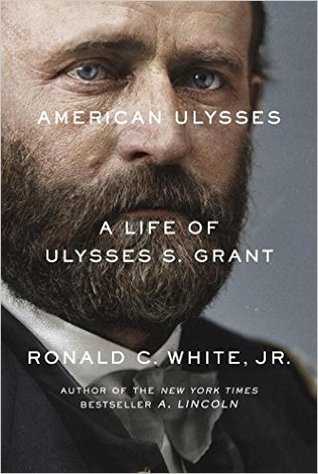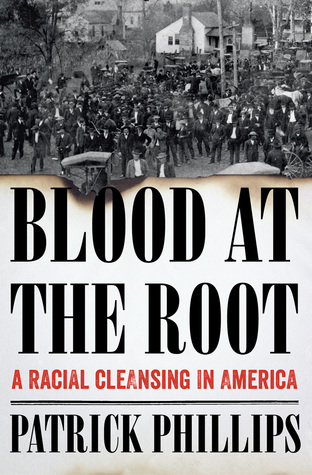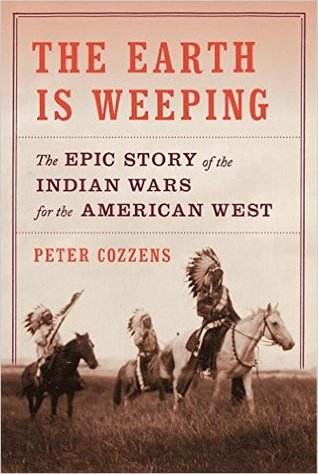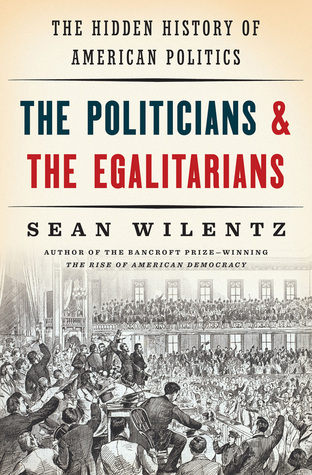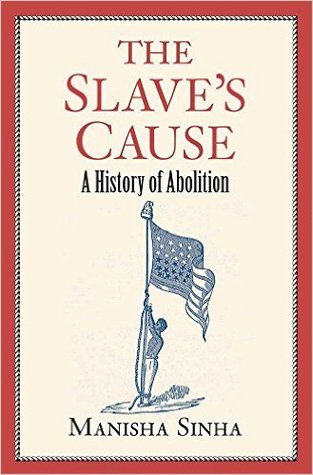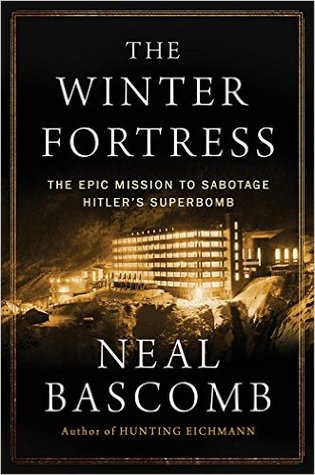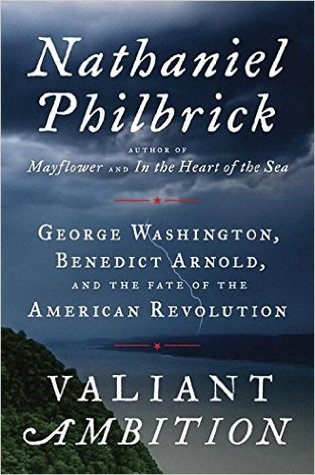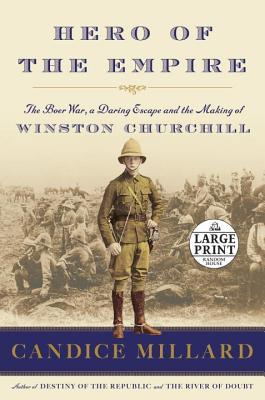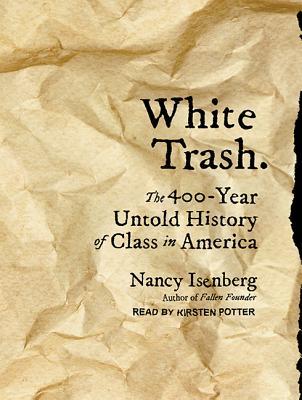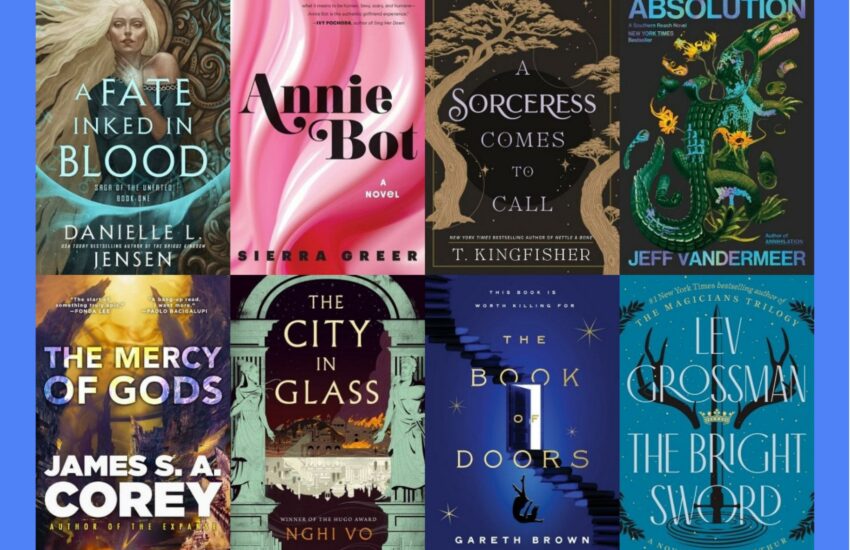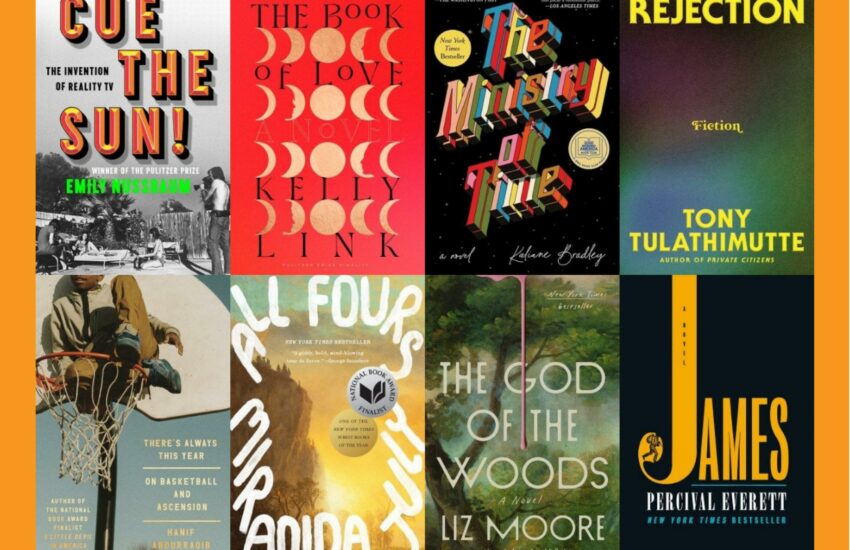The Best History Books of 2016 (A Year-End List Aggregation)
“What are the best History Books of 2016?” We aggregated 20 year-end lists and ranked the 206 unique titles by how many times they appeared in an attempt to answer that very question!
There are thousands of year-end lists released every year and, like we do in our weekly Best Book articles, we wanted to see which books appear on them the most. We used 20 lists and found 206 unique titles. The top 12 books, all appearing on 3 or more lists, are below with images, summaries, and links for learning more or purchasing. The remaining books, along with the articles we used, can be found at the bottom of the page.
Be sure to check out our other Best Book of the year lists:
- The Best Fiction Books of 2016
- The Best Nonfiction Books of 2016
- The Best Science Fiction & Fantasy Books of 2016
- The Best Cookbooks of 2016
- The Best Art & Photography Books of 2016
- The Best Graphic Novels & Comics of 2016
- The Best Science & Nature Books of 2016
- The Best Biography & Memoire Books of 2016
- The Best Poetry Books of 2016
And if you want to see how they compare to last year, take a look at the 2015 lists as well!
Happy Scrolling!
The Top History Books of 2016
12 .) American Ulysses: A Life of Ulysses S. Grant by Ronald C. White
- Amazon
- Omnivoracious
- Bloomberg
“Based on seven years of research with primary documents—some of them never examined by previous Grant scholars—this is destined to become the Grant biography of our time. White, a biographer exceptionally skilled at writing momentous history from the inside out, shows Grant to be a generous, curious, introspective man and leader—a willing delegator with a natural gift for managing the rampaging egos of his fellow officers. His wife, Julia Dent Grant, long marginalized in the historic record, emerges in her own right as a spirited and influential partner.
Grant was not only a brilliant general but also a passionate defender of equal rights in post-Civil War America. After winning election to the White House in 1868, he used the power of the federal government to battle the Ku Klux Klan. He was the first president to state that the government’s policy toward American Indians was immoral, and the first ex-president to embark on a world tour, and he cemented his reputation for courage by racing against death to complete his Personal Memoirs. Published by Mark Twain, it is widely considered to be the greatest autobiography by an American leader, but its place in Grant’s life story has never been fully explored—until now.
“
11 .) Blood at the Root: A Racial Cleansing in America by Patrick Phillips
- Amazon
- Goodreads
- The Smithsonian
“Forsyth County, Georgia, at the turn of the twentieth century was home to a large African American community that included ministers and teachers, farmers and field hands, tradesmen, servants, and children. Many black residents were poor sharecroppers, but others owned their own farms and the land on which they’d founded the county’s thriving black churches.
But then in September of 1912, three young black laborers were accused of raping and murdering a white girl. One man was dragged from a jail cell and lynched on the town square, two teenagers were hung after a one-day trial, and soon bands of white “night riders” launched a coordinated campaign of arson and terror, driving all 1,098 black citizens out of the county. In the wake of the expulsions, whites harvested the crops and took over the livestock of their former neighbors, and quietly laid claim to “abandoned” land. The charred ruins of homes and churches disappeared into the weeds, until the people and places of black Forsyth were forgotten.”
10 .) East West Street: On the Origins of Genocide and Crimes Against Humanity by Philippe Sands
- Stevereads
- Guardian
- The Economist
“East West Street looks at the personal and intellectual evolution of the two men who simultaneously originated the ideas of “genocide” and “crimes against humanity,” both of whom, not knowing the other, studied at the same university with the same professors, in a city little known today that was a major cultural center of Europe, “the little Paris of Ukraine,” a city variously called Lemberg, Lwów, Lvov, or Lviv.
The book opens with the author being invited to give a lecture on genocide and crimes against humanity at Lviv University. Sands accepted the invitation with the intent of learning about the extraordinary city with its rich cultural and intellectual life, home to his maternal grandfather, a Galician Jew who had been born there a century before and who’d moved to Vienna at the outbreak of the First World War, married, had a child (the author’s mother), and who then had moved to Paris after the German annexation of Austria in 1938. It was a life that had been shrouded in secrecy, with many questions not to be asked and fewer answers offered if they were.”
9 .) Imbeciles: The Supreme Court, American Eugenics, And The Sterilization Of Carrie Buck by Adam Cohen
- St. Lousi Post Dispatch
- NPR
- The Vore
“In 1927, the Supreme Court handed down a ruling so disturbing, ignorant, and cruel that it stands as one of the great injustices in American history. In Imbeciles, bestselling author Adam Cohen exposes the court’s decision to allow the sterilization of a young woman it wrongly thought to be “feebleminded” and to champion the mass eugenic sterilization of undesirable citizens for the greater good of the country. The 8–1 ruling was signed by some of the most revered figures in American law—including Chief Justice William Howard Taft, a former U.S. president; and Louis Brandeis, a progressive icon. Oliver Wendell Holmes, considered by many the greatest Supreme Court justice in history, wrote the majority opinion, including the court’s famous declaration “Three generations of imbeciles are enough.”
Imbeciles is the shocking story of Buck v. Bell, a legal case that challenges our faith in American justice. A gripping courtroom drama, it pits a helpless young woman against powerful scientists, lawyers, and judges who believed that eugenic measures were necessary to save the nation from being “swamped with incompetence.” At the center was Carrie Buck, who was born into a poor family in Charlottesville, Virginia, and taken in by a foster family, until she became pregnant out of wedlock. She was then declared “feebleminded” and shipped off to the Colony for Epileptics and Feeble-Minded.”
8 .) The Earth Is Weeping: The Epic Story of the Indian Wars for the American West by Peter Cozzens
- Amazon
- Omnivoracious
- The Smithsonian
With the end of the Civil War, the nation recommenced its expansion onto traditional Indian tribal lands, setting off a wide-ranging conflict that would last more than three decades. In an exploration of the wars and negotiations that destroyed tribal ways of life even as they made possible the emergence of the modern United States, Peter Cozzens gives us both sides in comprehensive and singularly intimate detail. He illuminates the encroachment experienced by the tribes and the tribal conflicts over whether to fight or make peace, and explores the squalid lives of soldiers posted to the frontier and the ethical quandaries faced by generals who often sympathized with their native enemies.
7 .) The Politicians and the Egalitarians: The Hidden History of American Politics by Sean Wilentz
- St. Lousi Post Dispatch
- Early Americanists
- Kirkus
“First, America is built on an egalitarian tradition. At the nation’s founding, Americans believed that extremes of wealth and want would destroy their revolutionary experiment in republican government. Ever since, that idea has shaped national political conflict and scored major egalitarian victories―from the Civil War and Progressive eras to the New Deal and the Great Society―along the way.
Second, partisanship is a permanent fixture in America, and America is the better for it. Every major egalitarian victory in United States history has resulted neither from abandonment of partisan politics nor from social movement protests but from a convergence of protest and politics, and then sharp struggles led by principled and effective party politicians. There is little to be gained from the dream of a post-partisan world.
With these two insights Sean Wilentz offers a crystal-clear portrait of American history, told through politicians and egalitarians including Thomas Paine, Abraham Lincoln, and W. E. B. Du Bois―a portrait that runs counter to current political and historical thinking. As he did with his acclaimed The Rise of American Democracy, Wilentz once again completely transforms our understanding of this nation’s political and moral character.”
6 .) The Romanovs: 1613-1918 by Simon Sebag Montefiore
- NPR
- The Economist
- Goodreads
“This is the intimate story of twenty tsars and tsarinas, some touched by genius, some by madness, but all inspired by holy autocracy and imperial ambition. Simon Sebag Montefiore’s gripping chronicle reveals their secret world of unlimited power and ruthless empire-building, overshadowed by palace conspiracy, family rivalries, sexual decadence and wild extravagance, with a global cast of adventurers, courtesans, revolutionaries and poets, from Ivan the Terrible to Tolstoy and Pushkin, to Bismarck, Lincoln, Queen Victoria and Lenin.
To rule Russia was both imperial-sacred mission and poisoned chalice: six of the last twelve tsars were murdered. Peter the Great tortured his own son to death while making Russia an empire, and dominated his court with a dining club notable for compulsory drunkenness, naked dwarfs and fancy dress. Catherine the Great overthrew her own husband (who was murdered soon afterward), enjoyed affairs with a series of young male favorites, conquered Ukraine and fascinated Europe. Paul I was strangled by courtiers backed by his own son, Alexander I, who in turn faced Napoleon’s invasion and the burning of Moscow, then went on to take Paris. Alexander II liberated the serfs, survived five assassination attempts and wrote perhaps the most explicit love letters ever composed by a ruler. The Romanovs climaxes with a fresh, unforgettable portrayal of Nicholas II and Alexandra, the rise and murder of Rasputin, war and revolution—and the harrowing massacre of the entire family.”
5 .) The Slave’s Cause: A History of Abolition by Manisha Sinha
- Stevereads
- Early Americanists
- Bloomberg
Received historical wisdom casts abolitionists as bourgeois, mostly white reformers burdened by racial paternalism and economic conservatism. Manisha Sinha overturns this image, broadening her scope beyond the antebellum period usually associated with abolitionism and recasting it as a radical social movement in which men and women, black and white, free and enslaved found common ground in causes ranging from feminism and utopian socialism to anti-imperialism and efforts to defend the rights of labor. Drawing on extensive archival research, including newly discovered letters and pamphlets, Sinha documents the influence of the Haitian Revolution and the centrality of slave resistance in shaping the ideology and tactics of abolition. This book is a comprehensive new history of the abolition movement in a transnational context. It illustrates how the abolitionist vision ultimately linked the slave’s cause to the struggle to redefine American democracy and human rights across the globe.
4 .) The Winter Fortress: The Epic Mission to Sabotage Hitler’s Atomic Bomb by Neal Bascomb
- Amazon
- Kirkus
- Goodreads
“It’s 1942 and the Nazis are racing to be the first to build a weapon unlike any known before. They have the physicists, they have the uranium, and now all their plans depend on amassing a single ingredient: heavy water, which is produced in Norway’s Vemork, the lone plant in all the world that makes this rare substance. Under threat of death, Vemork’s engineers push production into overdrive.
For the Allies, the plant must be destroyed. But how would they reach the castle fortress set on a precipitous gorge in one of the coldest, most inhospitable places on Earth?
Based on a trove of top secret documents and never-before-seen diaries and letters of the saboteurs, The Winter Fortress is an arresting chronicle of a brilliant scientist, a band of spies on skies, perilous survival in the wild, sacrifice for one’s country, Gestapo manhunts, soul-crushing setbacks, and a last-minute operation that would end any chance Hitler could obtain the atomic bomb—and alter the course of the war.”
3 .) Valiant Ambition: George Washington, Benedict Arnold, and the Fate of the American Revolution by Nathaniel Philbrick
- Amazon
- Goodreads
- Kirkus
- Omnivoracious
- The Smithsonian
“In September 1776, the vulnerable Continental Army under an unsure George Washington (who had never commanded a large force in battle) evacuates New York after a devastating defeat by the British Army. Three weeks later, near the Canadian border, one of his favorite generals, Benedict Arnold, miraculously succeeds in postponing the British naval advance down Lake Champlain that might have ended the war. Four years later, as the book ends, Washington has vanquished his demons and Arnold has fled to the enemy after a foiled attempt to surrender the American fortress at West Point to the British. After four years of war, America is forced to realize that the real threat to its liberties might not come from without but from within.
Valiant Ambition is a complex, controversial, and dramatic portrait of a people in crisis and the war that gave birth to a nation. The focus is on loyalty and personal integrity, evoking a Shakespearean tragedy that unfolds in the key relationship of Washington and Arnold, who is an impulsive but sympathetic hero whose misfortunes at the hands of self-serving politicians fatally destroy his faith in the legitimacy of the rebellion. As a country wary of tyrants suddenly must figure out how it should be led, Washington’s unmatched ability to rise above the petty politics of his time enables him to win the war that really matters.”
2 .) Hero of the Empire: The Boer War, a Daring Escape, and the Making of Winston Churchill by Candice Millard
- Amazon
- Goodreads
- NPR
- Omnivoracious
- St. Lousi Post Dispatch
- The Smithsonian
“At age twenty-four, Winston Churchill was utterly convinced it was his destiny to become prime minister of England one day, despite the fact he had just lost his first election campaign for Parliament. He believed that to achieve his goal he must do something spectacular on the battlefield. Despite deliberately putting himself in extreme danger as a British Army officer in colonial wars in India and Sudan, and as a journalist covering a Cuban uprising against the Spanish, glory and fame had eluded him.
Churchill arrived in South Africa in 1899, valet and crates of vintage wine in tow, there to cover the brutal colonial war the British were fighting with Boer rebels. But just two weeks after his arrival, the soldiers he was accompanying on an armored train were ambushed, and Churchill was taken prisoner. Remarkably, he pulled off a daring escape–but then had to traverse hundreds of miles of enemy territory, alone, with nothing but a crumpled wad of cash, four slabs of chocolate, and his wits to guide him.”
1 .) White Trash: The 400-Year Untold History of Class in America by Nancy Isenberg
- Amazon
- Bloomberg
- Dallas Voice
- Early Americanists
- Goodreads
- Kirkus
- NPR
- St. Lousi Post Dispatch
“The wretched and landless poor have existed from the time of the earliest British colonial settlement to today’s hillbillies. They were alternately known as “waste people,” “offals,” “rubbish,” “lazy lubbers,” and “crackers.” By the 1850s, the downtrodden included so-called “clay eaters” and “sandhillers,” known for prematurely aged children distinguished by their yellowish skin, ragged clothing, and listless minds.
Surveying political rhetoric and policy, popular literature and scientific theories over four hundred years, Isenberg upends assumptions about America’s supposedly class-free society––where liberty and hard work were meant to ensure real social mobility. Poor whites were central to the rise of the Republican Party in the early nineteenth century, and the Civil War itself was fought over class issues nearly as much as it was fought over slavery. Reconstruction pitted poor white trash against newly freed slaves, which factored in the rise of eugenics–-a widely popular movement embraced by Theodore Roosevelt that targeted poor whites for sterilization. These poor were at the heart of New Deal reforms and LBJ’s Great Society; they haunt us in reality TV shows like Here Comes Honey Boo Boo and Duck Dynasty. Marginalized as a class, white trash have always been at or near the center of major political debates over the character of the American identity.”
#13-206 Best History Books of 2016
| # | Book | Author | Lists |
| (Books Appear On 2 Lists Each) | |||
| 13 | All The Single Ladies: Unmarried Women And The Rise Of An Independent Nation | Rebecca Traister | NPR |
| Goodreads | |||
| 14 | American Heiress: The Wild Saga of the Kidnapping, Crimes and Trial of Patty Hearst | Jeffrey Toobin | Amazon |
| St. Lousi Post Dispatch | |||
| 15 | American Revolutions: A Continental History, 1750-1804 | Alan Taylor | Early Americanists |
| Kirkus | |||
| 16 | Blood Brothers: The Fatal Friendship Between Muhammad Ali and Malcolm X | Randy Roberts and Johnny Smith | Amazon |
| Goodreads | |||
| 17 | Blood in the Water: The Attica Prison Uprising of 1971 and Its Legacy | Heather Ann Thompson | Stevereads |
| Bloomberg | |||
| 18 | City of Dreams: The 400-Year Epic History of Immigrant New York | Tyler Anbinder | Amazon |
| Kirkus | |||
| 19 | Final Solution: The Fate of the Jews 1933-1949 | David Cesarani | Guardian |
| Stevereads | |||
| 20 | Hidden Figures: The American Dream And The Untold Story Of The Black Women Mathematicians Who Helped Win The Space Race | Margot Lee Shetterly | NPR |
| Goodreads | |||
| 21 | Hitler: Ascent, 1889-1939 | Volker Ullrich | Amazon |
| The Smithsonian | |||
| 22 | Joe Gould’s Teeth | Jill Lepore | NPR |
| Early Americanists | |||
| 23 | Lenin on the Train | Catherine Merridale | The Economist |
| Financial Times | |||
| 24 | Louisa: The Extraordinary Life Of Mrs. Adams | Louisa Thomas | NPR |
| The Smithsonian | |||
| 25 | Martin Luther: Renegade and Prophet | History Day | |
| History Day | |||
| 26 | Midnight in Broad Daylight: A Japanese American Family Caught Between Two Worlds | Pamela Rotner Sakamoto | Kirkus |
| Goodreads | |||
| 27 | Rise of the Rocket Girls: The Women Who Propelled Us, from Missiles to the Moon to Mars | Nathalia Holt | Goodreads |
| The Vore | |||
| 28 | Secondhand Time: The Last Of The Soviets | Svetlana Alexievich | Kirkus |
| NPR | |||
| 29 | Spain In Our Hearts | Adam Hochschild | St. Lousi Post Dispatch |
| Goodreads | |||
| 30 | Stamped from the Beginning: The Definitive History of Racist Ideas in America | Early Americanists | |
| Kirkus | |||
| 31 | The Gene: An Intimate History | Siddhartha Mukherjee | St. Lousi Post Dispatch |
| NPR | |||
| 32 | The Immortal Irishman: The Irish Revolutionary Who Became an American Hero | Timothy Egan | Amazon |
| Goodreads | |||
| 33 | The Other Slavery: The Uncovered Story Of Indian Enslavement In America | Andrés Reséndez | Kirkus |
| NPR | |||
| 34 | The Rise and Fall of American Growth | Robert J. Gordon | Bloomberg |
| Kirkus | |||
| 35 | The Vanquished: Why the First World War Failed to End | Robert Gerwath | Stevereads |
| Financial Times | |||
| 36 | The Wicked Boy: The Mystery of a Victorian Child Murderer | Kate Summerscale | Guardian |
| Amazon | |||
| 37 | Truevine: Two Brothers, a Kidnapping, and a Mother’s Quest: A True Story of the Jim Crow South | Beth Macy | St. Lousi Post Dispatch |
| The Smithsonian | |||
| (Books Appear On 1 List Each) | |||
| 38 | 1666: Plague, War and Hellfire | Huffington Post 2 | |
| 39 | A Divided City | St. Lousi Post Dispatch | |
| 40 | A History of Britain in 21 Women: A Personal Selection | Huffington Post 2 | |
| 41 | A Kingdom of their Own | Joshua Partlow | St. Lousi Post Dispatch |
| 42 | A Nation Without Borders: The United States and Its World in an Age of Civil Wars, 1830-1910 | Early Americanists | |
| 43 | A Revolution in Color: The World of John Singleton Copley | Early Americanists | |
| 44 | A Square Meal: A Culinary History of the Great Depression | Jane Ziegelman and Andrew Coe | The Smithsonian |
| 45 | A Very English Scandal: Sex, Lies and a Murder Plot at the Heart of the Establishment | The Vore | |
| 46 | After Caravaggio | History Day | |
| 47 | AMERICA’S WAR FOR THE GREATER MIDDLE EAST: A MILITARY HISTORY | Andrew J. Bacevich | Kirkus |
| 48 | American Cake: From Colonial Gingerbread To Classic Layer, The Stories And Recipes Behind More Than 125 Of Our Best-Loved Cakes | Anne Byrn | NPR |
| 49 | American Enlightenments: Pursuing Happiness in the Age of Reason | Early Americanists | |
| 50 | Animal Electricity: How We Learned That the Body and Brain Are Electric Machines | Robert B. Campenot | Bioteaching |
| 51 | Apostle of Union: A Political Biography of Edward Everett | Early Americanists | |
| 52 | Apostle: Travels Among the Tombs of the Twelve | Tom Bissell | Stevereads |
| 53 | Ardor | Roberto Calasso | Verso |
| 54 | At the Existentialist Café: Freedom, Being, and Apricot Cocktails with Jean-Paul Sartre, Simone de Beauvoir, Albert Camus, Martin Heidegger,… | Sarah Bakewell | Amazon |
| 55 | Barkskins: A Novel | Annie Proulx | NPR |
| 56 | Battling the Gods: Atheism in the Ancient World | Tim Whitmarsh | Stevereads |
| 57 | Beyond Greek: The Beginnings of Latin Literature | History Day | |
| 58 | Bind Us Apart: How Enlightened Americans Invented Racial Segregation | Early Americanists | |
| 59 | Bitten by Witch Fever: Wallpaper and Arsenic in the Victorian Home | Huffington Post 2 | |
| 60 | Blitzed: Drugs in Nazi Germany | Guardian | |
| 61 | Brilliant Beacons: A History of the American Lighthouse | The Vore | |
| 62 | Brothers at Arms | Larrie Ferreiro | Stevereads |
| 63 | Burn Baby Burn | Meg Medina | NPR |
| 64 | Bush | Jean Edward Smith | St. Lousi Post Dispatch |
| 65 | Carry Me: A Novel | Peter Behrens | NPR |
| 66 | Caught in the Revolution: Petrograd, 1917 | Huffington Post 2 | |
| 67 | Cheap Novelties: The Pleasures Of Urban Decay | Ben Katchor | NPR |
| 68 | Children of Paradise: The Struggle for the Soul of Iran | Laura Secor | Amazon |
| 69 | City of Sedition: The History of New York City During the Civil War | John Strausbaugh | Dallas Voice |
| 70 | COLUMBUS—THE UNTOLD STORY | Manuel Rosa | Huffington Post |
| 71 | Countdown to Pearl Harbor | Steve Twomey | The Smithsonian |
| 72 | Culloden | History Day | |
| 73 | Dangerous Neighbors: Making the Haitian Revolution in Early America | Early Americanists | |
| 74 | Dark Money: The Hidden History Of The Billionaires Behind The Rise Of The Radical Right | Jane Mayer | NPR |
| 75 | Darktown: A Novel | Thomas Mullen | NPR |
| 76 | Darwin’s Man in Brazil: The Evolving Science of Fritz Müller | David A. West | Bioteaching |
| 77 | Darwinism as Religion: What Literature Tells Us about Evolution | Michael Ruse | Bioteaching |
| 78 | Dead Presidents | Brady Carlson | St. Lousi Post Dispatch |
| 79 | Don’t Call Me Grandma | Vaunda Nelson, illustrated | NPR |
| 80 | Earth’s Deep History: How It Was Discovered and Why It Matters | Martin J. S. Rudwick | Bioteaching |
| 81 | Ego Is The Enemy | Ryan Holiday | NPR |
| 82 | Eleanor And Hick: The Love Affair That Shaped A First Lady | Susan Quinn | NPR |
| 83 | Eleanor Roosevelt, Volume 3: The War Years And After, 1939-1962 | Blanche Wiesen Cook | NPR |
| 84 | Elizabeth: The Forgotten Years | John Guy | Financial Times |
| 85 | Empire of Things: How We Became a World of Consumers, from the Fifteenth Century to the Twenty-First | Frank Trentmann | Bloomberg |
| 86 | Endeavouring Banks: Exploring Collections from the Endeavour Voyage 1768-1771 | Neil Chambers | Bioteaching |
| 87 | Eve of a Hundred Midnights: The Star-Crossed Love Story of Two WWII Correspondents and their Epic Escape Across the Pacific | Bill Lascher | Goodreads |
| 88 | Eyes On The Street: The Life Of Jane Jacobs | Robert Kanigel | NPR |
| 89 | Fatal Purity: Robespierre and the French Revolution | Ruth Scurr | Verso |
| 90 | Feeding Gotham: The Political Economy and Geography of Food in New York, 1790-1860 | Gergely Baics | Financial Times |
| 91 | Fine Lines: Vladimir Nabokov’s Scientific Art | Stephen H Blackwell | Bioteaching |
| 92 | First Women: The Grace and Power of America’s Modern First Ladies | Kate Andersen Brower | Goodreads |
| 93 | Five Presidents: My Extraordinary Journey with Eisenhower, Kennedy, Johnson, Nixon, and Ford | Clint Hill | Goodreads |
| 94 | Freedom Over Me: Eleven Slaves, Their Lives And Dreams Brought To Life | Ashley Bryan | NPR |
| 95 | From the War on Poverty to the War on Crime: The Making of Mass Incarceration in America | Early Americanists | |
| 96 | Ghostland: An American History In Haunted Places | Colin Dickey | NPR |
| 97 | Hamilton: The Revolution | Lin-Manuel Miranda, Jeremy McCarter | NPR |
| 98 | Harry & Arthur | St. Lousi Post Dispatch | |
| 99 | Heart of Europe: A History of the Holy Roman Empire | Peter Wilson | The Economist |
| 100 | History of Islamic Philosophy | Henry Corbin | Verso |
| 101 | House of Lost Worlds: Dinosaurs, Dynasties, and the Story of Life on Earth | Richard Conniff | Bioteaching |
| 102 | HOW EVERYTHING BECAME WAR AND THE MILITARY BECAME EVERYTHING: TALES FROM THE PENTAGON | Rosa Brooks | Kirkus |
| 103 | How To Be A Tudor: A Dawn-to-Dusk Guide To Tudor Life | Ruth Goodman | NPR |
| 104 | How to Survive a Plague | David France | Stevereads |
| 105 | Huxley’s Church and Maxwell’s Demon: From Theistic Science to Naturalistic Science | Matthew Stanley | Bioteaching |
| 106 | Illiberal Reformers: Race, Eugenics, and American Economics in the Progressive Era | Thomas C. Leonard | Bloomberg |
| 107 | India Conquered: Britain’s Raj and the Chaos of Empire | Guardian | |
| 108 | India’s War: The Making of Modern South Asia 1939-1945 | Srinath Raghavan | Financial Times |
| 109 | Invasion Genetics: The Baker and Stebbins Legacy | Spencer C.H. Barrett | Bioteaching |
| 110 | James Sowerby: The Enlightenment’s Natural Historian | Paul Henderson | Bioteaching |
| 111 | Kill ‘Em And Leave: Searching For James Brown And The American Soul | James McBride | NPR |
| 112 | Killing the Rising Sun: How America Vanquished World War II Japan | Bill O’Reilly | Goodreads |
| 113 | Landmarks | Robert Macfarlane | Bloomberg |
| 114 | Leninism Under Lenin | Marcel Liebman | Verso |
| 115 | Leonard: My Fifty-Year Friendship with a Remarkable Man | William Shatner | Goodreads |
| 116 | Listen To The Moon | Rose Lerner | NPR |
| 117 | Lives and Times of Great Pioneers in Chemistry: From Lavoisier to Sanger | C N R Rao | Bioteaching |
| 118 | March: Book Three | John Lewis, with Andrew Aydin, illustrated | NPR |
| 119 | Mind Your Manors | Lucy Lethbridge | Dallas Voice |
| 120 | Moonglow: A Novel | Michael Chabon | NPR |
| 121 | Most Blessed of the Patriarchs”: Thomas Jefferson and the Empire of the Imagination | Early Americanists | |
| 122 | Moths, Myths, and Mosquitoes: The Eccentric Life of Harrison G. Dyar, Jr. | Marc Epstein | Bioteaching |
| 123 | New England Bound: Slavery and Colonization in Early America | Early Americanists | |
| 124 | New World A-Coming: Black Religion and Racial Identity during the Great Migration | Early Americanists | |
| 125 | NOTHING EVER DIES: VIETNAM AND THE MEMORY OF WAR | Viet Thanh Nguyen | Kirkus |
| 126 | Organizing Enlightenment | History Day | |
| 127 | Our Sister Republics: The United States in an Age of American Revolutions | Early Americanists | |
| 128 | Paracuellos Volume 1 | Carlos Giménez | NPR |
| 129 | PART OF THE FAMILY | Jason Hensley | Huffington Post |
| 130 | Pax Romana: War, Peace and Conquest in the Roman World | Adrian Goldsworthy | Amazon |
| 131 | Peplum | Blutch | NPR |
| 132 | Pit Bull: The Battle Over An American Icon | Bronwen Dickey | NPR |
| 133 | Please Kill Me: The Uncensored Oral History Of Punk | Legs McNeil and Gillian McCain | NPR |
| 134 | Portrait of a Woman in Silk: Hidden Histories of the British Atlantic World | Early Americanists | |
| 135 | Possession: The Curious History Of Private Collectors From Antiquity To The Present | Erin Thompson | NPR |
| 136 | Radio and the Politics of Sound in Interwar France, 1921-1939 | Rebecca P Scales | Financial Times |
| 137 | Reading Darwin in Arabic, 1860-1950 | Marwa Elshakry | Bioteaching |
| 138 | Red Platoon: A True Story of American Valor | Clinton Romesha | Amazon |
| 139 | Republic of Taste: Art, Politics, and Everyday Life in Early America | Early Americanists | |
| 140 | Richard III: A Ruler and his Reputation | History Day | |
| 141 | Richard Posner | William Domnarski | Bloomberg |
| 142 | Rogue Heroes: The History Of The SAS, Britain’s Secret Special Forces Unit That Sabotaged The Nazis And Changed The Nature Of War | Ben Macintyre | NPR |
| 143 | Romantic Biology, 1890-1945 (History and Philosophy of Biology) | Maurizio Esposito | Bioteaching |
| 144 | Science among the Ottomans: The Cultural Creation and Exchange of Knowledge | Miri Shefer-Mossensohn | Bioteaching |
| 145 | Shirley Jackson: A Rather Haunted Life | Ruth Franklin | Goodreads |
| 146 | Shock And Awe: Glam Rock And Its Legacy, From The Seventies To The Twenty-first Century | Simon Reynolds | NPR |
| 147 | Show Me the Bone: Reconstructing Prehistoric Monsters in Nineteenth-Century Britain and America | Gowan Dawson | Bioteaching |
| 148 | Slavery’s Capitalism: A New History of Economic Development | Early Americanists | |
| 149 | Sleep in Early Modern England | Huffington Post 2 | |
| 150 | So Great a Prince: England in 1509 | Huffington Post 2 | |
| 151 | SPQR: A History of Ancient Rome | The Vore | |
| 152 | Strange Gods | Susan Jacoby | Stevereads |
| 153 | Terror In The City Of Champions: Murder, Baseball, And The Secret Society That Shocked Depression-era Detroit | Tom Stanton | NPR |
| 154 | THE BITTER TASTE OF VICTORY: IN THE RUINS OF THE REICH | Lara Feigel | Kirkus |
| 155 | The Blessings of Business: How Corporations Shaped Conservative Christianity | Early Americanists | |
| 156 | The Book Of Magic: From Antiquity To The Enlightenment | Brian Copenhaver (editor) | NPR |
| 157 | The Book: A Cover-to-Cover Exploration of the Most Powerful Object of Our Time | Keith Houston | Bloomberg |
| 158 | The Caped Crusade: Batman And The Rise Of Nerd Culture | Glen Weldon | NPR |
| 159 | The Common Cause: Creating Race and Nation in the American | Early Americanists | |
| 160 | The Cultural Revolution: A People’s History, 1962-1976 | Frank Dikötter | Financial Times |
| 161 | The Defender: How the Legendary Black Newspaper Changed America | Ethan Michaeli | Amazon |
| 162 | The EU: An Obituary | History Day | |
| 163 | The Experimental Self: Humphry Davy and the Making of a Man of Science (Synthesis) | Jan Golinski | Bioteaching |
| 164 | THE FIRST CONGRESS: HOW JAMES MADISON, GEORGE WASHINGTON, AND A GROUP OF EXTRAORDINARY MEN INVENTED THE GOVERNMENT | Fergus M. Bordewich | Kirkus |
| 165 | The Garden and the Fire: Heaven and Hell in Islamic Culture | Nerina Rustomji | Verso |
| 166 | The General vs. the President | H.W. Brands | St. Lousi Post Dispatch |
| 167 | The Geography of Genius: A Search for the World’s Most Creative Places from Ancient Athens to Silicon Valley | Eric Weiner | Amazon |
| 168 | The Glass Universe: How The Ladies Of The Harvard Observatory Took The Measure Of The Stars | Dava Sobel | NPR |
| 169 | The Gustav Sonata: A Novel | Rose Tremain | NPR |
| 170 | The Heart of the Declaration: The Founders’ Case for an Activist Government | Early Americanists | |
| 171 | The Invention of Russia: From Gorbachev’s Freedom to Putin’s War | Arkady Ostrovsky | Amazon |
| 172 | The Invisibles: The Untold Story of African American Slaves in the White House | Jesse J. Holland | The Smithsonian |
| 173 | The Jazz Of Physics: The Secret Link Between Music And The Structure Of The Universe | Stephon Alexander | NPR |
| 174 | The Life Organic: The Theoretical Biology Club and the Roots of Epigenetics | Erik L. Peterson | Bioteaching |
| 175 | The Lives of Tudor Women | Huffington Post 2 | |
| 176 | The Long Weekend: Life in the English Country House between the Wars | Guardian | |
| 177 | The Many Captivities of Esther Wheelwright | Early Americanists | |
| 178 | The Mayor Of Mogadishu: A Story Of Chaos And Redemption In The Ruins Of Somalia | Andrew Harding | NPR |
| 179 | The Midnight Assassin: Panic, Scandal, and the Hunt for America’s First Serial Killer | Skip Hollandsworth | Goodreads |
| 180 | The Moment of Caravaggio | History Day | |
| 181 | The Myth of the Andalusian Paradise: Muslims, Christians and Jews under Islamic Rule in Medieval Spain | Darío Fernández-Morera | Financial Times |
| 182 | The Nevilles of Middleham | Huffington Post 2 | |
| 183 | THE PROFITEERS: BECHTEL AND THE MEN WHO BUILT THE WORLD | Sally Denton | Kirkus |
| 184 | The Pursuit of Power: Europe 1815-1914 | Richard Evans | The Economist |
| 185 | The Relic Master | History Day | |
| 186 | The Restless Clock: A History of the Centuries-Long Argument over What Makes Living Things Tick | Jessica Riskin | Bioteaching |
| 187 | The Road to little Dribbling | Bill Bryson | St. Lousi Post Dispatch |
| 188 | The Secret Art of Alchemy | Robert M. Black | Bioteaching |
| 189 | THE SECRET WAR: SPIES, CIPHERS, AND GUERRILLAS, 1939-1945 | Max Hastings | Kirkus |
| 190 | The Shipwrecked Mind: On Political Reaction | Mark Lilla | Bloomberg |
| 191 | The Trials of the King of Hampshire | Guardian | |
| 192 | The Ultimate Ambition In The Arts Of Erudition: A Compendium Of Knowledge From The Classical Islamic World | Shihab al-Din al-Nuwayri, translated | NPR |
| 193 | The Vanishing Velázquez: A 19th Century Bookseller’s Obsession With A Lost Masterpiece | Laura Cumming | NPR |
| 194 | The War on Alcohol: Prohibition and the Rise of the American State | Lisa McGirr | Financial Times |
| 195 | The Water Kingdom: A Secret History of China | Philip Ball | The Economist |
| 196 | This Vast Southern Empire: Slaveholders at the Helm of American Foreign Policy | Early Americanists | |
| 197 | Thomas Jefferson Dreams Of Sally Hemings: A Novel | Stephen O’Connor | NPR |
| 198 | Toward Democracy: The Struggle for Self-Rule in European and American Thought | Early Americanists | |
| 199 | Urban Forests: A Natural History Of Trees And People In The American Cityscape | Jill Jonnes | NPR |
| 200 | Village Atheists: How America’s Unbelievers Made Their Way in a Godly Nation | Early Americanists | |
| 201 | WAGING WAR: THE CLASH BETWEEN PRESIDENTS AND CONGRESS, 1776 TO ISIS | David J. Barron | Kirkus |
| 202 | Weeping Britannia | History Day | |
| 203 | West of Eden | Jean Stein | St. Lousi Post Dispatch |
| 204 | White Rage | Carol Anderson | St. Lousi Post Dispatch |
| 205 | William the Conqueror | David Bates | Financial Times |
| 206 | Witness to the Revolution | Clara Bingham | St. Lousi Post Dispatch |
The 20 Best History Book Lists Used
| Source | Article |
| Amazon | Best history books of 2016 |
| Bioteaching | Top 2016 History of Science Books |
| Bloomberg | Great History Books of 2016 |
| Dallas Voice | Holiday Gift Guide: Reading list! |
| Early Americanists | My Favorite Books from 2016; or, a Christmas Book List for Your Early American History Nerd Friends |
| Financial Times | Best books of 2016: History |
| Goodreads | BEST HISTORY & BIOGRAPHY |
| Guardian | The best history books of 2016 |
| History Day | The best history books of 2016 |
| Huffington Post | The Best Self-Published Books of 2016 |
| Huffington Post 2 | History Books By Women: Eight Of The Best From 2016 |
| Kirkus | Best History Books of 2016 |
| NPR | NPR’s Book Concierge Our Guide To 2016’s Great Reads |
| Omnivoracious | The Best History Books of the Year |
| St. Lousi Post Dispatch | The Best Books of 2015 |
| Stevereads | Best Books of 2016 – History! |
| The Economist | Books of the Year 2016 |
| The Smithsonian | The Top History Books of 2016 |
| The Vore | Best new History books in 2016 |
| Verso | Staff Picks: Books of the Year 2016—Chosen by Verso |

